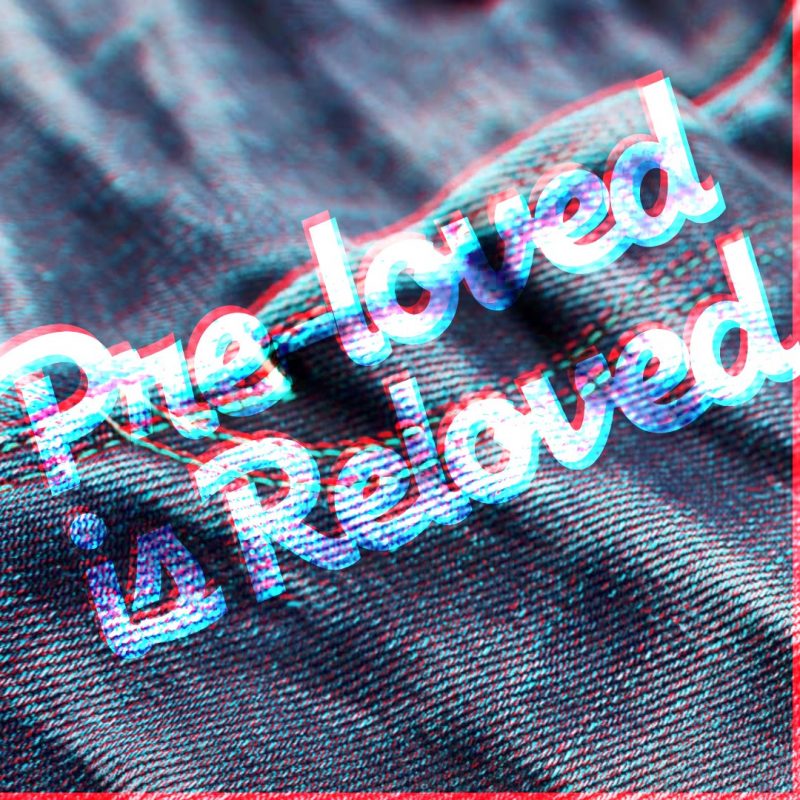Prospects for the resale sector have never looked brighter. In the cold light of the global economic downturn caused by Covid-19, sales in the fashion industry have seen a steep decline. And yet on the other hand the resale market has thrived. According to Boston Consulting Group the market is expected to grow 15-20% per year through 2025. And even though resale is far from a new phenomenon, something about the way we are relating and engaging with resale has changed in the past year.
Since 2020 the market has undergone a radical transformation. Gone are the days of spending endless hours scrolling through eBay looking for your favorite designer items. Key players, such as Vestiaire Collective, ThreadUp and The RealReal, have lost no time in transforming the perception of second-hand, turning it into a new pre-loved luxury format.
Importantly, as well as superleague fashion brands, shoppers now have an opportunity to purchase names that normally are way out of their range. Think Hermes or Cartier at a fraction of the original price! ThredUp co-founder and CEO James Reinhart has said; “Resale is here to stay. The next question is who wins and who loses.” So here we take a look at the consignment sites to know, purchase and sell on.
Power Player
One of the leading online marketplaces for luxury pre-owned goods is Paris-based powerhouse, Vestiaire Collective, which has grown into a community of over 11 million members across 50 countries worldwide. Founded in 2009, this has become the go-to site for fashion lovers looking to purchase their favorite designer items at a reasonable price. By adding thousands of new listings each day, this has one of the largest selections of pre-loved designer goods from almost every luxury brand you can wish for.
In response to the site’s success it has developed various partnerships over the years. For instance, in partnership with Selfridges, the resale site has opened its first permanent brick-and-mortar retail space, which according to Chief Executive Max Bittner “is more of a marketing play than a revenue driver”. Additionally, in February it introduced a ‘Brand Approved’ programme, which means items will be received and authenticated by the brands themselves. Part of the Brand Approved programme is currently the brands, Alexander McQueen and Mulberry.
How does it work?
Vestiaire Collective offers two options when selling your pre-loved goods – either you can list it yourself or you can let the team sell it for you. When selling an item, all you have to do is upload visuals and a description of the item. Afterwards, the team will thoughtfully pick the items that will go on the site. The current commission model is 25% deducted from sales.
Acknowledged for its authenticity and quality control processes, when purchasing an item from the site, it will be shipped directly to the head office in Paris, where a quality control team validates the authenticity before shipping it to you. “The curation and authenticity element builds trust between us and our customers. We control the consumer-to-consumer element and ensure everything is checked and processed correctly,” explains co-founder Sébastien Fabre to Drapers. “It’s this control that I feel appeals to our customers.”
Need some styling advice? The team makes inspiring lists – by clicking on the “We Love” tab, you can discover gorgeous items on sale at the site. Another feature is the site’s ability to create alerts, which inform you when a specific piece you are chasing for is listed.
Our verdict? What’s not to like.
One To Watch
British platform HEWI (formerly Hardly Ever Worn It) is also experiencing positive growth and is now a favorite among fashion lovers and editors. Founded in 2012 by Sharon Wolter-Ferguson, this high end resale site is known for its pre-loved designer goods and superbrand gems with pieces selling for up to 75% below their original price. Even though the product offering at HEWI is more limited than Vestiaire Collective (standout brands include Hermes, Chanel and Celine – just to name a few) if you are looking for a Chanel Flap Bag or your next pair of Manolo Blahnik heels, this is one for you.
A friend and user of HEWI is Sophie Selchau, 22, a student based in London. She is drawn to the site for its editorial feel and the prices. “I find HEWI so easy to navigate in, it almost feels like a shopping at Farfetch. I always find something I want every time I’m browsing – sometimes I even find items only a season old. This site makes it possible to find my favorite designer items at a good price. This is the perfect way for me to stay stylish and on a budget”
How does it work?
This offers a seamless shopping experience, when purchasing items. “Shopping resale should be like shopping on Matches or Net-A-Porter – current and quality items in great condition and with fast delivery,” said Sharon Wolter-Ferguson, founder of HEWI, to ELLE UK. This site guarantees the authenticity of items being purchased. The platform offers two services: a regular service (peer-to-peer) and a VIP. By subscribing to the VIP service, in-house experts handle everything on your behalf – from collecting your items to handling all buyer enquiries.
If you are searching for streetwear and high-street labels, this has also introduced a new branch, named HEWI Street, where you can find brands such as Topshop, Urban Outfitters, Adidas etc. Besides purchasing and selling, this also gives you the opportunity to swap your items with other members.
Gen-Z Favorite
Founded by Simon Beckerman in 2011, London-based Depop has also joined the list of successful resale sites. In contrast to Vestiaire Collective and HEWI London, Depop, is a peer-to-peer platform and is described as a social space that merges Instagram and eBay. “As a peer-to-peer marketplace with resale at the forefront of our business, Depop is a champion of circular-first commerce,” says Depop CEO, Maria Raga, in an interview with British Vogue.
With 90% of users under the age of 26, Depop has especially become a cult hit among Gen Z. Depop’s CEO Maria Raga told British Vogue: “As a platform, Depop exists to support the next generation in their transformation of the fashion industry. By empowering our young community and helping them realise their dreams, we’re helping enable a more accessible, diverse, creative fashion industry”
Users are drawn to the app for the thrifted and vintage items, as well as pieces from independent designers. However, you can still find designer goods, such as a vintage Dior saddle bag here. In an interview with The New York Times, one Depop seller, Fiona Short, told us she is drawn to this site because of “the culture of the app is young, open-minded, and versatile. It’s easy to build a community of people with similar tastes and interests that overlap beyond fashion and style. It doesn’t necessarily just focus on clothing, or the selling of clothes. It focuses on music, fashion, art … mental health, and sustainability. It’s a marketplace that allows space for personal expression, culture, and community”.
How does it work?
Purchasing and selling through Depop is quick and easy. It enables its users to set up their own Instagram-like feed where you can list your pre-loved goods, adding your own visuals and descriptions – set the price and then ship directly to the buyer. When selling an item, it charges a 10% commission, which is a small percentage compared to other consignment sites.
So what does it take to be a successful Depop seller? In an interview with Vogue, one UK-based seller, Pascale Davies, 26, claims the key to success lies in cultivating your brand: “Staying true to you is the most important advice. People will love and follow your shop because it represents you… they will find it and understand that you have similar taste,” she explains. “Depop is so personal, because the majority of users are the face behind [their] brand.” Another UK seller, Adwoa Owusu, Darko, 22, describes listing your item as key: “The more time and effort you put into your descriptions, the better. It’s important to have as many keywords (make sure you only use relevant ones) as possible, so your items show up when customers are searching.”























